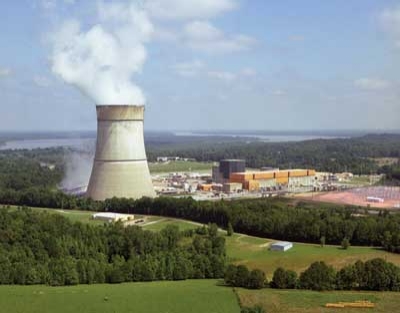Grand Gulf Nuclear Generating Station.jpg

One of the things that supporters of nuclear power always bring up is the fact that nuclear power plants are base-load power. This means that the plants are always running and producing power as opposed to solar and wind installation which are intermittent. Having base-load power sources on the electrical grid to continually supply a minimum amount of electricity is very important. While nuclear power is theoretically base-load, in reality, nuclear power plants are not “always on.” In addition to the scheduled downtime necessary to load new nuclear fuel every twelve to eighteen months, there can be unscheduled shutdowns caused by technical problems in the complex components of plant.
The Grand Gulf Nuclear Generating Station is the largest single-unit nuclear plant in the U.S. It is located near the western border of Alabama and has a maximum capacity of one thousand four hundred and forty-three megawatts. It began operating in 1985. There have been plans to add additional reactors, but they were all abandoned. It is an example of why nuclear power cannot be counted on for base-load power.
A review of federal daily reactor status reports by E&E News found that between 2013 and the present, the Grand Gulf only operated at full power for a little over half the time. It was at zero power about one fifth of the time. The rest of the time, it was operating at reduced power.
Entergy holds a ninety percent stake in Grand Gulf through a company called System Energy Resources, Inc. Utilities in Arkansas, Mississippi and Louisiana all receive electricity from Grand Gulf. When Grand Gulf is shut down, the local grid must find other power sources which can be more expensive and involve the use of fossil fuels with their carbon emissions.
The Grand Gulf had five unplanned downpower events in the past year. One of these outages lasted for three months. There have been other long power outages. An outage that started in September of 2016 lasted for five months. In 2016, Grand Gulf was at zero power for a total of one hundred and seventy-six days.
Turning a nuclear power reactor on and off can make the reactor unstable. Entergy says that it is working on making the plant operation more reliable at Grand Gulf. The NRC says that the plant is still safe to operate. However, the NRC has sent a notice to Entergy that the performance of the Grand Gulf is now outside of what the NRC considers normal.
Other electrical utilities and nuclear plant operators have similar problems as many reactors in the U.S. fleet are nearing the end of their licensed life spans. The operators of many of these aging nuclear plants are applying to the Nuclear Regulatory Commission for twenty-year extensions of their operating licenses.
It is very expensive to build a nuclear power plant but once in operation, they are relatively cheap to operate. The fuel is inexpensive and is not subject to the volatility of other fuels. While in operation, the plants do not emit carbon dioxide and other pollutants. However, as nuclear power plants age, the maintenance costs rise and obtaining replacement parts becomes increasingly difficult. In addition, downtimes increase.